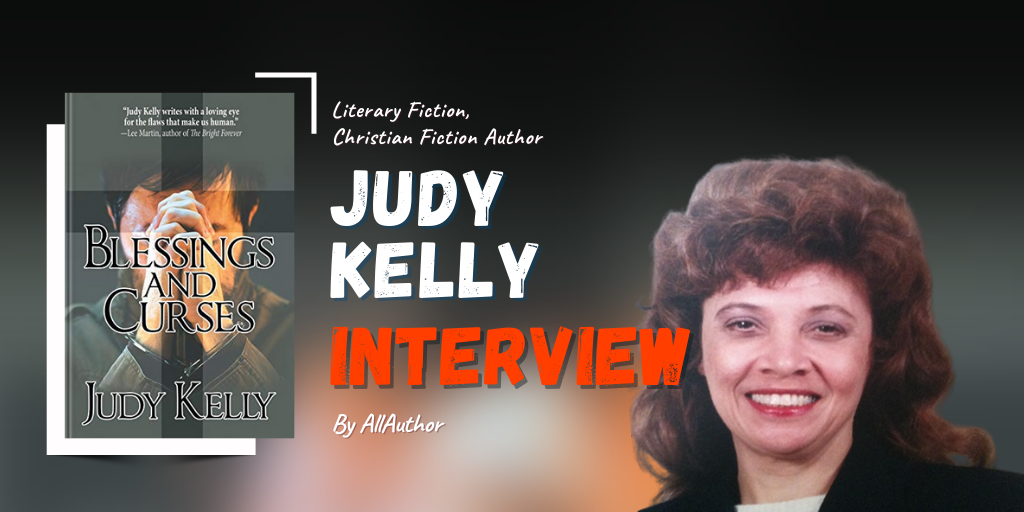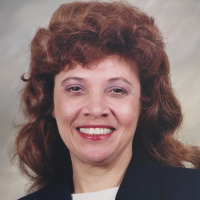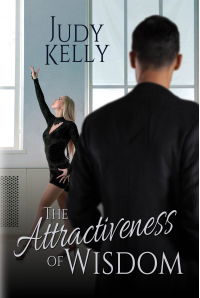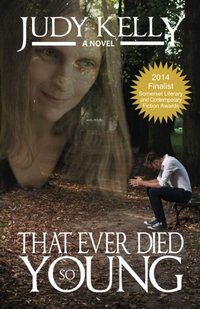Judy Kelly Interview Published on: 19, Apr 2021
 As a child, what did you want to do when you grew up?
As a child, what did you want to do when you grew up?
As I child, I didn’t give much thought to what I would be. My mother told me I would make a good teacher, so I became an elementary school teacher, progressed to middle for one year, and then went on to teach in a high school. I loved elementary and high school and think about those students often. Now, I am a professor at a college.
What is the earliest experience you had with books/writing that you remember?When I was in kindergarten, I would read books to my mother while she prepared dinner. The interaction I had with my mother encouraged me to read more books. When I was in middle school, I read Gone with the Wind, about ten times. I checked out books from the public library so often, and many times the same book that the librarian told me I needed to let other have a chance to read. I loved to read stories. I fell in love with the characters, the writing, and the time period. I loved the way the scenes were painted, and the words used to paint those pictures. I also began writing in middle school. I wrote stories, a chapter a day until I thought my story was finished. I would fill up a spiral notebook, and when that book was filled, I would go and buy another notebook and fill it was a story.
Your thoughts on conventional vs. self-publishing? What route did you choose and why?The choice between conventional (traditional) publishing and self-publishing should be a personal preference, not a need. I wanted to be published by a traditional publisher because too many people who self-publish need to have the book edited and revised before it is published. I needed to know that my book was well-written and a polished piece of work, and someone wanted to publish it. I have noticed that many who self-publish don’t bother with polishing the novel or try to write in a genre and I wanted my novel to be seen as different from those. In teaching, I’ve also noticed that my students don’t understand about genres or the elements of storytelling. They just want to write a novel. I begin by asking them to know what kind of story they want to write and then to know the conventions of that genre. They need to know how to write in that genre. Then we look at the elements of storytelling before we begin crafting a story. A few years ago, I heard someone say that they had sent their novel out to several agents and the book was rejected. The person decided to self-publish the book. Why not re-write the novel? Maybe take a class on how to write a novel. Also, submit to agents who accept your kind of work.
There are other reasons why one would self-publish, one being that when a book sells the author gets all the money. A person can self-publish the book soon after writing it rather than wait the time it takes traditional publishers to publish the work. I would think there are more than those reasons.
I write Christian Literary Fiction and before I send out a story, I want it to be written in the way literary fiction and Christian fiction is written. I want my novel to represent what I look for in other novels – well-developed characters, well-developed plot, meaningful settings, proficient use of the tools of story-telling, subtext throughout the story, and the story makes me want to keep on reading.
Do you remember the first book you ever wrote?The first book I ever wrote was a children’s book entitled, I Didn’t Get a Chance to Say Good-bye. As you can imagine, it was a story about loss. I began writing when I taught elementary school. My students were in the learning disabilities program. During that time, the LD program used the clinical method, which included games, to teach students thinking skills. These games, however, did not teach reading or writing skills. Teaching reading would include those skills ingames, as well as skills for reading and writing. I told my students we would not use the games, but we would use books and read them to develop thinking, reading, writing and speaking skills. Of course, they took the news hard and didn’t want to give up the games they enjoyed so much. I asked them to help me put away the games and then we’d go to the bookroom to get books. My students were 4 th and 5 th grade and we got reading books for 4 th and 5 th graders.
But they were unable to read the books and I didn’t want to drop down to a lower grade. That would not improve their self-esteem. So, I created stories for them. I included the vocabulary required for 4 th and 5 th grade students and tried to make the stories interesting. I created discussion questions for them to answer after they read the story and some questions for them to answer individually.
One day when entering the classroom, I saw that the students had somehow gotten into the room I usually locked and were sitting around the reading table in an argument about something. I put my things down and sat down at the table. I heard one person say to another, “Why would you think he would do that? He hasn’t done anything like that in the story so far.” I realized that the student was talking about the part of the story we read the day before. They were all trying to figure out what the character would do next. Then one turned to me and asked what the character would do next. I couldn’t believe that they liked the stories.
Just before the year ended, one student said that my stories sounded like stories you’d buy in a real bookstore. The other students agreed. Thus, the beginning of my writing career. The first story I wrote was, I Didn’t Get a Chance to Say Good-bye. I wanted to try to get it published, but then I decided to keep it and remember my students and the enormous growth and effort they put in the reading class that led to my becoming an author.
What challenges did you face while publishing your first novel, That Ever Died So Young?The biggest challenge is always in writing the story. Beyond that, That Ever Died So Young was published by a very small company that is now out of business. The publisher was easy to work with, and very helpful. He made almost every change I asked, made several suggestions, and helped me understand the publisher’s job.
When was the first time you gave a presentation on dialogue at any conference?My first novel was published in 2014 and I gave my first presentation in 2016 before my second novel came out in 2018. Many who read That Ever Died So Young and those I asked to read Blessings and Curses before it was printed, all commented on the dialogue. I wanted to share what I did with others.
Did you expect your latest novel, Blessings and Curses to be in the top ten most popular novels in the Sharjah, Frankfurt, and Guadalajara book fairs, 2018?It was a very nice surprise. People relate to the story. No matter who a person is or does or what a person has been through, Blessings and Curses has some part of everyone.
Since how long have you been a member of Maryland Writers’ Association.I’ve been a member of Maryland Writers’ for many year. I began the Montgomery County Chapter of the organization almost ten years ago. Montgomery County was (and maybe still) the largest chapter in the organization.
How would you describe your experience of teaching a workshop in fiction writing at Montgomery College?I enjoy teaching. I teach fiction writing the same way I teach English at the college. The students in the fiction writing class say that my teaching is different. I want them all to be good writers, so I teach like that. I need them to understand the elements of story telling and how to apply the elements to the writing of their stories.
What is your writing kryptonite? Inversely, what is something that never fails to inspire you?I write because of the story I’m writing. I don’t have an ambiance or things that inspire or don’t inspire me that are outside the story. I write character novel. I write stories about people who have problems and how they go about making changes in themselves. I want to tell my main character’s story. I get into the character and plot and stay there until I come to the end of a scene or chapter. I become part of the story. Very often, I can’t wait to write the next scene or chapter, so I get up early and take my character through the next section.
Who inspired the character of Scott Kersey in That Ever Died So Young?Scott is a conglomeration of many people. I needed someone who drank to excess, suffered from guilt from something in his past and someone who thought he had caused his mother’s death. I knew two people who had something from their past and another who drank excessively. I used them to help create Scott.
How has your journey of being an adjunct professor at Montgomery College been?I love the college and the people in my department. For me, it has always been a place where I have met people and formed relationships and have grown as a teacher. Many of the professors have now retired, moved to other areas, or passed away, and the college has certainly changed from the time I began there. But it has always been a place where faculty members worked together and supported each other and cared for each and every student.
Which is the next book you are working on? Is it a series or s stand-along book?My next novel, The Attractiveness of Wisdom will debut November 2021. I have begun the next one, The Vine in the Vineyard. After I finished The Attractiveness of Wisdom, many people asked me if it was a series. It is not, but in The Vine and the Vineyard, there will be characters from all novels in this one. I can’t wait to finish it to see how it all turns out. Since I watched so many romance Christmas movies this past Christmas, I thought I’d write one; thus, I’m also working on Carollynn Christmas.
Lastly, what are your thoughts and opinions on AllAuthor and its services?I really like AllAuthor and highly recommend it. I seem to have more exposure on this site than I have on some of my other social media sites. Everything is quick, easy, and affordable for me. I plan to put my next two books on the site. Then I get to do this Great Interview. Now how nice is that?
Share Judy Kelly's interview
An award-winning author, Judy Kelly loved to read stories. The first book she ever wrote was a children’s book entitled, I Didn’t Get a Chance to Say Good-bye. She enjoys teaching. She writes stories about people who have problems and how they go about making changes in themselves. Kelly's flawless flow creates a very interesting storyline that keeps the reader engaged and yearning for more.




